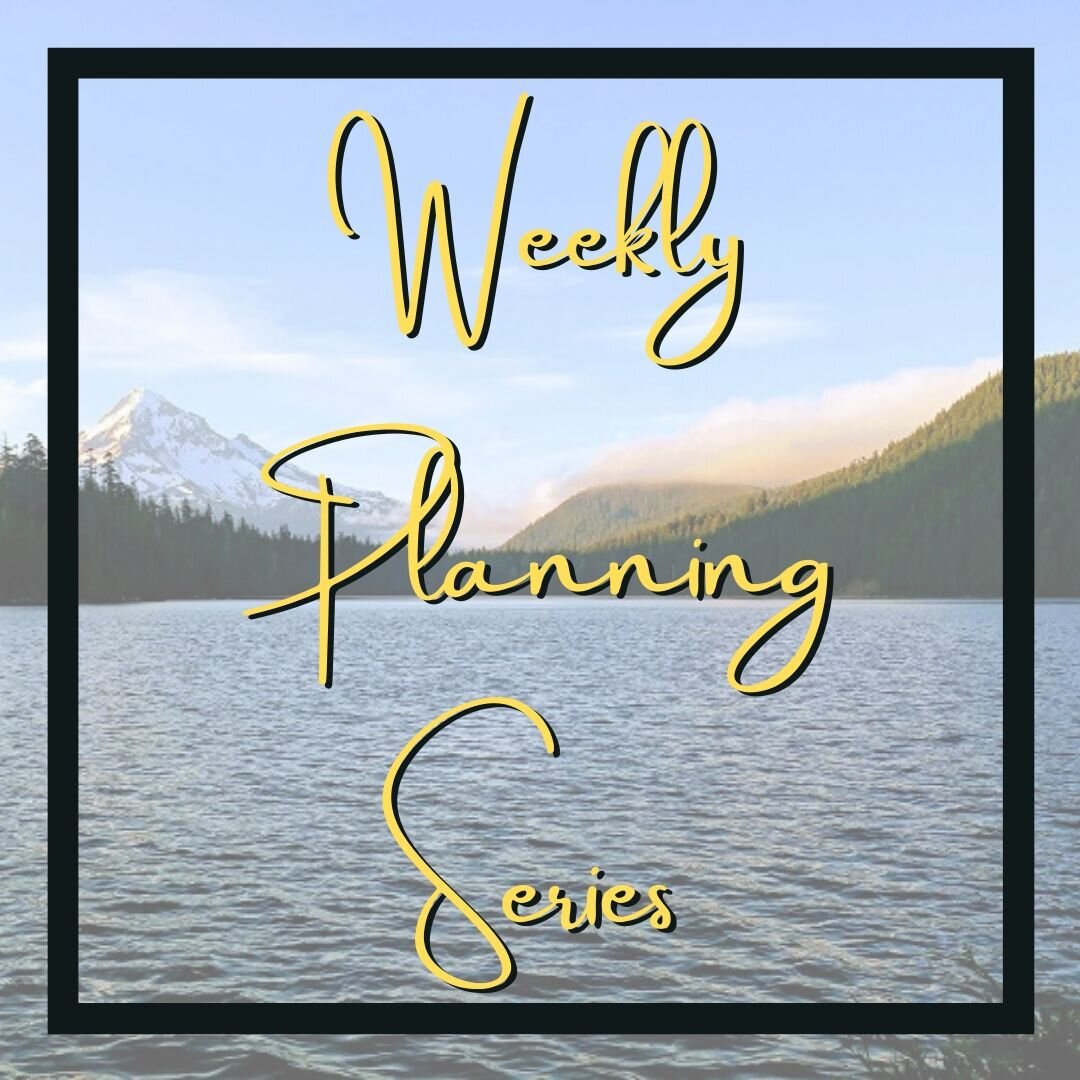10 Things That I Regularly Include In My Calendar
I’m picking back up with my weekly planning series posts that I started in the summer of 2020 (the last post in the series focused on organizing your to-do list if you’re interested in checking it out). Today’s post focuses on some of the things that I think are important to include in your calendar as an academic.
If you were to take a look at my weekly calendar, you’d probably think that it looks pretty chaotic. But that’s just because (during the work week) I’ve got pretty much everything I’m doing outlined on my calendar, from my daily meditation to assignment grading to meetings and beyond, it’s all on there. Why do I do this? Because it helps so much with estimating my time and being realistic about what I can and cannot accomplish during any given day or week. I’d say it’s one of the practices that I think can have the biggest impact on taking control of your time.
Below you’ll find 10 key things that I have in my calendar to make sure my days and weeks run smoothly.
Daily routines
All those things you do on a regular basis, like getting ready in the morning, or making meals, or working out, or commuting, or putting your kid(s) to bed… they all take time. Having them on your calendar (if you’re using Google calendar - set as a recurring event) means that you can more clearly see the actual amount of time you have for work, relaxation, that random request from a colleague, etc. While these routines may not necessarily take the same amount of time each day, I find that as long as I put the average amount of time they take, plus a bit of wiggle room, it usually does the trick. If you have no idea how much time your daily routines take, that’s definitely a sign that you might benefit from some time tracking in your life!
Commute time
If you’re commuting on a regular basis, this might show up in your regular routines. Also be sure to include commuting for non-regular activities, like a random doctor’s appointment, or a meeting with a community member, or a one-time errand. Driving, finding parking, getting from your car to wherever it is you’re going, that time adds up. Or if you’re using public transit, you’re not necessarily dealing with the parking issue but you’re running on someone else’s schedule. Until teleportation becomes a thing, including commute time is a must!
Personal appointments
I’m a huge fan of being able to see all of my activities in one spot (which is why I love Google calendar and it’s ability to create multiple/separate calendars). Part of the appeal of academic life is often that our schedules are flexible, which means we can often head to a doctor’s appointment in the middle of the day or meet a friend for breakfast. Adding these pieces in, and being able to see them next to your work engagements is an important part of visualizing your weekly schedule.
Meetings
You know you have them! This probably seems like a no-brainer, but faculty should absolutely make sure that meetings are showing up on their work calendars. Depending on your institution, this may be done for you if you get invited to events, otherwise add them in yourself! Bonus step for meetings, add in some buffer time before and after your meeting to give yourself some mental space.
Classes
Teaching classes? Taking classes? Treat these like meetings too! Make sure they show up on your calendar as well, along with some buffer time to decompress and add in any new items to your to-do list that came up during class time.
Email time
I have two main email times blocked off on my calendar each work day, with a mini check-in mid day. Other than that, I’m generally not looking at email, which makes life feel so much less chaotic. Assigning email to specific times of day, putting it on your calendar, and sticking to it, can do wonders for keeping it from becoming a time suck.
Important deadlines
Do you have tenure materials due? A grant submission deadline? Conference proposal deadline? Make sure all of these things are reflected in your calendar so that you see them and can plan accordingly.
Important university dates/deadlines
If you serve in any sort of advising role, it can be helpful to have key dates for things like registration, or dropping/adding classes, or finals week, in your calendar so you know when there might be an uptick in student emails/questions. I also like to have finals week marked off too, so I know to cool it with requests during that time, as I know lots of my colleagues are grading (as am I!) and students are working on wrapping things up.
Holidays and special dates
For me, these events serve as a nice reminder to take the day off, celebrate, call a loved one, or whatever needs to happen!
Conference dates
I like to block off conference dates in my calendar… even if I’m not going, so I know when people may not be as likely to respond to requests, as well as when my availability is likely to change.
While there are a number of other things that go into my calendar, these are some of the things I find to be the most important, and have shown up on my calendar consistently throughout the years!
What do you include in your calendar?
